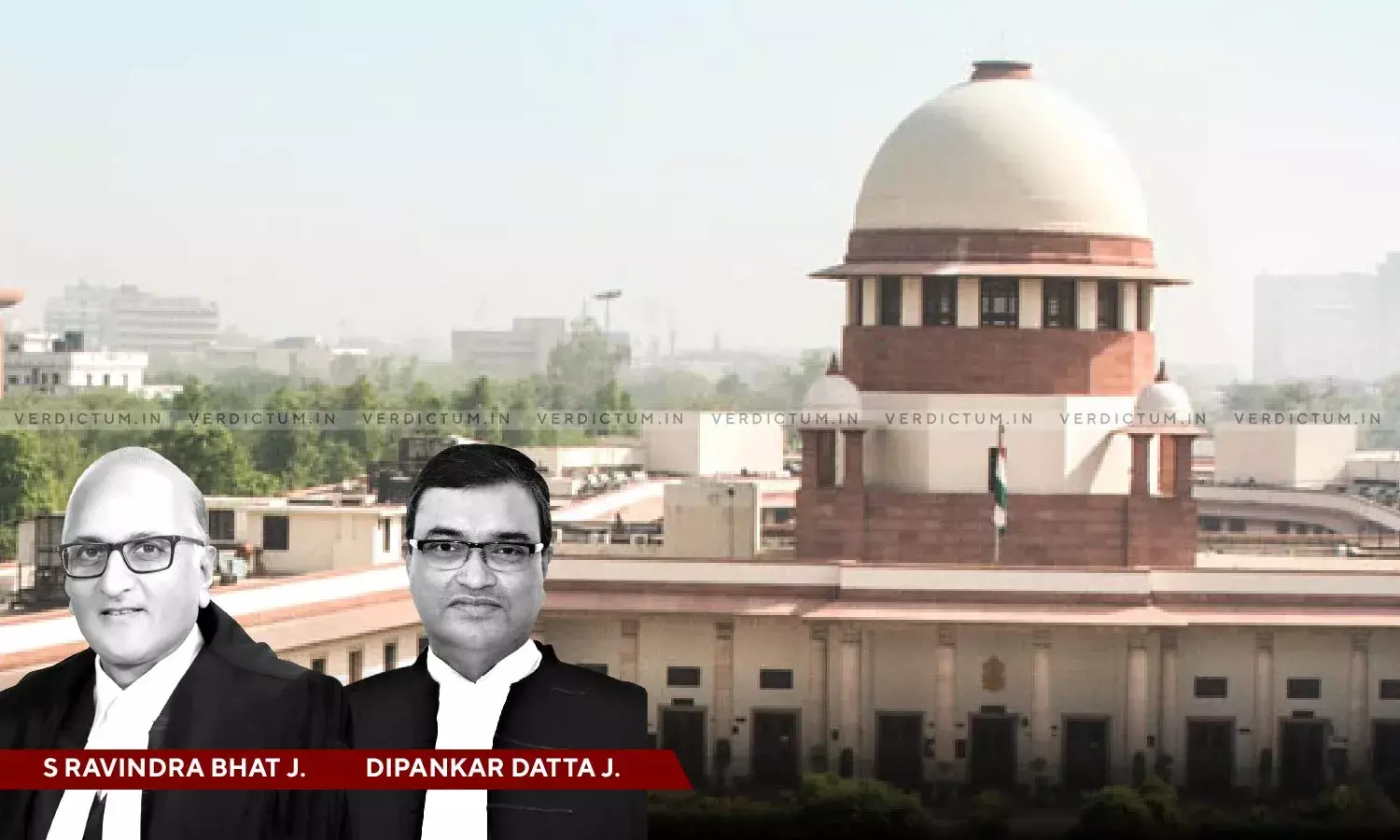Section 313(5) CrPC: Written Statement Of Accused Marked As Exhibit Has To Be Considered In Light Of Evidence Led By Prosecution-SC

The Supreme Court while setting aside conviction in a murder case has observed that once a written statement is filed by the accused under sub-section (5) of section 313 of the Criminal Procedure Code (CrPC) and the Court marks it as an exhibit, such statement should be treated as part of the accused’s statement under sub-section (1) read with sub-section (4).
The Court also held that the same has to be considered in the light of the evidence led by the prosecution to appreciate the truthfulness or otherwise of such a case and the contents of such statement weighed with the probabilities of the case either in favor of the accused or against him.
The Bench of Justice S. Ravindra Bhat and Justice Dipankar Datta observed that “...by not looking into Ext. 96 with the other evidence on record, what the trial court omitted to consider is, whether the prosecution was justified in claiming that the offensive act amounted to culpable homicide amounting to murder or whether the appellant being guilty of culpable homicide not amounting to murder, deserved punishment under section 304, Part II, IPC...In the process, the trial court failed to appreciate the defence version as spelt out in Ext.96, which appears to us to be plausible”
Advocate Ravindra Bana appeared for the appellant and Advocate Siddharth Dharmadhikari appeared for the respondent-State.
In this case, an appeal was preferred against the order of the Bombay High Court, Nagpur bench whereby the appellant was convicted under Section 302 of the Indian Penal Code,1860 (IPC) and was sentenced to life imprisonment. The appellant had voluntarily submitted his statement in writing while being questioned under Section 313(1) CrPC before the trial court as his response to the incriminating materials which appeared in the evidence against him.
On perusal of the exhibit. 96 i.e., the written statement of the appellant under Section 313(1)(b) CrPC, the Apex Court noted that it clearly showed that an act of retaliation spurred by sudden provocation resulted in a quarrel as well as a scuffle which ultimately, most unfortunately, costed the victim his life and left some others injured. The appellant too had sustained injuries in the scuffle and there was evidence on record, yet, the criminal law was surprisingly not set in motion to bring to book those responsible for inflicting such injury.
The Apex Court considered the well-settled principles regarding the recording of statement under Section 313(1)(b) of (CrPC) and expressed that “every criminal court proceeding under clause (b) of sub-section (1) of section 313 has to shoulder the onerous responsibility of scanning the evidence after the prosecution closes its case, to trace the incriminating circumstances in the evidence against the accused and to prepare relevant questions to extend opportunity to the accused to explain any such circumstance in the evidence that could be used against him.”
“It appears to us to be a fair and proper disclosure of the appellant’s version as to what transpired on that fateful evening. Most importantly, the circumstances in which the incident occurred does clearly negate any suggestion of premeditation in mind.” the Apex Court further added.
“In our opinion, the trial court lacked in objectivity by not examining the facts and circumstances as to whether the situation was such as is likely to reasonably cause an apprehension in the mind of the appellant that there was imminent danger to his body, of either death or grievous hurt being caused to him, if he did not act in private defence. To impute intention to cause death or the intention to cause that particular injury, which proved fatal, in these circumstances seems to be unreasonable.” observed the Apex Court
Therefore, the Apex Court further observed that the four requirements to invoke the exception 4 to section 300 IPC viz. “(i) it was a sudden fight; (ii) there was no premeditation; (iii) the act was done in a heat of passion; and (iv) the assailant had not taken any undue advantage or acted in a cruel or unusual manner”, were satisfied.
Consequently, the Apex Court held that the appellant was entitled to the benefit of Exception 4 to section 300, IPC and appellant could not have been convicted for murder of the victim. Thus, his conviction for murder and sentence of life imprisonment were liable to be set aside.
Accordingly, the appeal was allowed.
Cause Title- Premchand v. The State of Maharashtra

